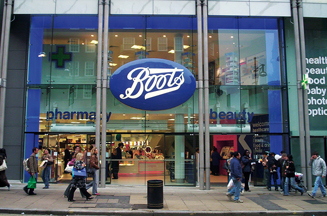
A row between high-street chemist Boots and premium haircare brand Paul Mitchell has cast the spotlight back on the murky world of so-called 'grey market' goods.
Boots has begun to sell Paul Mitchell products in its flagship stores, to the annoyance of the brand's distributor, Salon Success, which wants them stocked in select hairdressers only. Boots obtained the goods from an unnamed supplier, without permission from Salon Success, and the spat now appears to have reached deadlock.
At the heart of this and other grey-market rows is the struggle between the retailer and the brand over which calls the shots in terms of distribution.
Brand owners believe that a product's channel to market is intrinsically linked to its brand equity. It may be that they have also have signed an exclusivity deal with a certain chain, as is common with FMCG brands. Whatever the reasons, there are a range of instances of retailers showing little sympathy with the brand owner's strategy.
The grey market is, indeed, opaque. Verdict Research consulting director Neil Saunders defines it as 'not illegal, but an unofficial channel through which goods are sold'. He says the concept covers anything from intermediaries to official buyers who find themselves with excess stock and offload it to another retailer.
'Buyers are very well-connected, and know where they can get certain goods while others are approached directly by people. It's all very ad hoc,' he adds.
To the uninitiated, the idea of wanting to limit a brand's distribution seems absurd. A few eyebrows were raised last year when Alan Clark, European managing director of SABMiller, revealed that the company was considering restricting sales of beer brand Peroni to maintain its integrity.
John Littleton, Miller Brands UK corporate services director, says: 'It's very important that a brand like Peroni is presented in the best way in the right outlets,' he says. 'We work closely with our customers to develop value-adding activations and initiatives which protect the strong equity of all our brands.'
The grey market, inevitably, also occupies a grey area of the law. Predicting the outcome of a dispute based on past examples is therefore impossible, as each has to be taken on a case-by-case basis, argues Peter Lidgey, managing director of shopper marketing specialist OgilvyAction.
Tesco and Levi's, for example, had a 'grey' row, from which the jeans brand emerged triumphant in 2002. Lidgey says it was the fact that Tesco was buying its stock from outside Europe that swung the case in Levi's favour.
However, he sounds a note of caution with regards to the reaction of Paul Mitchell. Lidgey claims to have seen research indicating that 40% of consumers are visiting hairdressing salons less frequently. 'With this in mind, perhaps Paul Mitchell should revisit its channel strategy, reconsider Boots and move to a position where it is in control,' he says.
Brands wanting to retain exclusivity could face a dilemma as the recession takes its toll. Commentators are urging marketers of brands that have traditionally eschewed a value proposition to keep faith in their positioning. Such brands, it is argued, should resist the temptation to reposition to appeal to cash-strapped consumers if they wish to emerge from the recession with their brand equity intact.
Nonetheless, arguments to the contrary should also be borne in mind. As consumers' spending power diminishes, the prospect of wider distribution through grey-market channels should be embraced. Indeed, they may even be an opportunity, rather than a threat, for brands.
'Grey' disputes
- 2007 Tesco obtained unofficial stocks of Procter & Gamble's Eukanuba specialist pet food. The decision angered P&G, which supplied Eukanuba exclusively to pet shops and vets' surgeries.
- 2007 Football clubs have had many spats over the years with supermarkets that have sourced replica kits from the grey market and sold them below the recommended retail price. Most recently Umbro refused to supply Asda, leaving the supermarket threatening to seek its products elsewhere.
- 2002 Levi's and Tesco spent three years in court debating the retailer's right to sell the brand, before arriving at a final decision in July 2002. In the end the European Court of Justice ruled in favour of the jeans brand.
- 2001 French Connection fell out with Asda, which had started to sell grey market FCUK goods. Months later, however, FCUK made a dramatic reversal and agreed to supply the supermarket after all.


